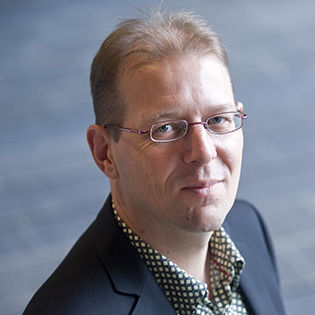Event cancelled - The Empirical Humanities: an obscured tradition with a bright future?
- Location
- Muirhead Tower - G15 (large ground floor lecture theatre)
- Dates
- Wednesday 26 June 2024 (18:00-19:00)

Please note - the event below has unfortunately had to be cancelled as the speaker is unwell
Professor Rens Bod delivers the third in our Transformative Humanities lecture series'
The theme of my talk is the way in which scholars have sought to identify patterns in text, art, music, language, literature, and the past. What rules can we apply if we wish to determine whether a tale about the past is trustworthy? What rules jointly describe all possible grammatical sentences in a language? How can modern digital methods enhance pattern-seeking in the humanities? I will describe how the empirical tradition in the humanities was rejected by early 20th-century philosophers in favor of hermeneutic approaches. And how humanistic practice remained nevertheless empirical as well as hermeneutic. Still, scholars believe that they are moving towards science when they use empirical methods in studying texts, art, music, or the past. I will demonstrate that such methods actually signify a renaissance of the humanities' empirical roots established in the 15th-century “studia humanitatis”. I will discuss some recent trends in humanistic scholarship, from medical to environmental humanities, and will conclude with some unexpected prospects for the relation between humanities and society.
This lecture will be followed by a drinks reception in the Muirhead Tower Atrium
Biography
Rens Bod is professor of Digital Humanities and History of Humanities, director of the Center for Digital Humanities and director of the Vossius Center for the History of Humanities and Sciences. He investigates the humanities from both computational and historical perspectives. He currently serves as president of the Society for the History of the Humanities, and is a member of Royal Dutch Society of Sciences and Humanities and of the Society for the Dutch Letters. He is also the founder of WOinActie, an action group that aims at achieving appropriate funding for Dutch universities. A comprehensive biography and details of his publications can be found on Rens' webpage.